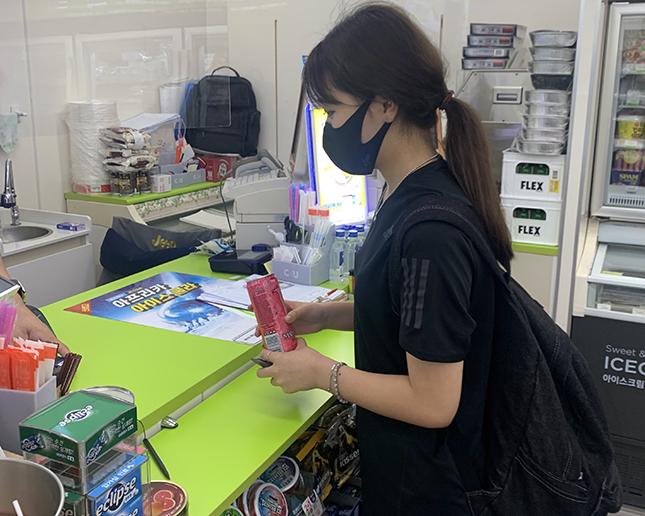Going into my third year of high school, I was met with a heavier load of assignments and more tightly scheduled exams than ever before. Adding a bit of extra to my schoolwork, I am also studying for the SAT and getting ready for college applications. To manage the workload, I constantly feel the need to fight off sleep, but it has always been difficult for me. Fortunately, a magical solution exists that adds more hours to my day - high-caffeine energy drinks. My go-to is Monster, and I regularly drink four to five cans a week or at most two cans a day if I am studying for important exams. As the energy drinks taste good and have a variety of flavor options, I gradually developed a habit of pop opening a can even when I do not need to stay awake.

It turns out that the popularity of energy drinks is seen worldwide, with its market growing every year, especially among adolescents. The students at Korean International School in Jeju (KISJ) are part of this global trend. They are indeed the primary buyers of energy drinks at a convenience store near the school. Among them, Christine Lee and Jenny Hwang have also developed the same habit of going for energy drinks before pulling all-nighters. Their reason for drinking them was no different from mine - it was solely to sleep less. Christine, who drinks about five cans of Monster a week, said, “I drink Monster because it just became a habit during the exam weeks, and I now get nervous the day before exams if I do not drink it.” Jenny, whose favorite is also Monster, added, “If I just sleep less during the 24 hours I have in a day, then I can study more for anything.”

However, the power of energy drinks seems to take a toll, especially on the consumer’s health. Annika Kim and Jiwoo Lee are among the students at KISJ who have experienced serious health problems after they started having energy drinks. Annika said she cut down on the amount of energy drink consumption because she had stomach pain and headaches after drinking a lot. She now only has one or two cans just during the final exam week when she absolutely needs to stay awake. Jiwoo, on the other hand, has experienced far more severe health issues. His go-to drink used to be Red Bull or Monster and he once even stocked his room with a box of them. After regularly drinking two to three cans a day, he started to experience panic attacks and a much faster heartbeat that eventually led him to fall unconscious. I am also familiar with these side effects. I had even trouble sleeping when I did want to go to bed.

These health effects are nothing new. The growing energy drink consumption has led various health organizations to publish the health risks of energy drinks, especially for teenagers. The Center for Disease Control in the United States has warned that energy drinks can cause many health complications, including heart failure and anxiety. The National Health Service in the United Kingdom has also issued a warning over energy drinks as it may lead to caffeine overdose and have effects on neurological systems, especially for adolescents. These risks have led to the growing number of energy drink-related emergency room visits and hospitalization.
I personally had never thought about the health risks when I filled up my refrigerator with highly caffeinated drinks. At first, I just wanted to keep myself awake for a few more hours to study for exams or finish homework assignments. The energy drinks helped me do exactly that. It then later became a habit just to drink them regularly. However, I have experienced the risks of doing so, and so have my classmates. It seems necessary that the students at KISJ and around the world be aware of the serious health risks associated with energy drinks. After all, we are what we eat.

Jeong Bin Kim
Grade 11
Korea International School Jeju

